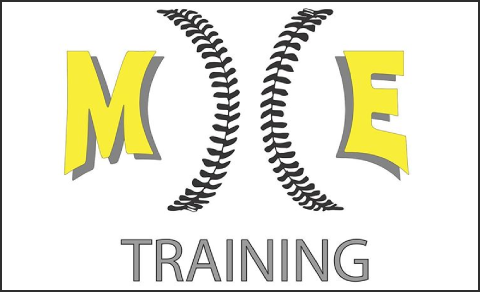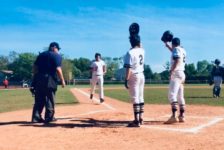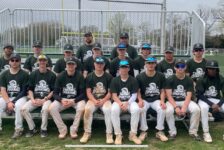Michael Huber is a Certified Mental Performance Consultant accredited by the Association of Applied Sport Psychology. The primary focus of Michael’s practice is serving young athletes.
With the nature of baseball being a game of failure, he is the perfect person to discuss the mental side of the game. Training the mental skills can sometimes be just as impactful as the physical skillset.
I had a chance to speak with him and here’s what he had to say..

Can you tell our audience a little bit about your background and how you broke into this industry?
I grew up on Long Island and played baseball at Valley Stream North. I started two years on varsity there and also spent time with the 1991 team that went to the Long Island Championship. Baseball was my first love. Unfortunately, I didn’t have a chance to play in college, but I chose to start playing again in adult leagues in my mid-20s. I “retired” in my early 40s due to injuries that wouldn’t let me keep going.
I also coached youth baseball for almost 10 years and was a mental performance coach on the varsity baseball staff at Saint Joseph High School in Metuchen, New Jersey. That team was outs away from winning a state championship. I loved coaching in high school. I had the privilege of working with several future college players from that team and one MLB draft pick who is still currently playing affiliate ball.
Sport psychology is my second career. My decision to enter the field was influenced by my experiences playing baseball for about 25 years and also coaching youth baseball. I wanted to be the guy for young players that I didn’t have growing up in the game. It wasn’t my ability on the field that held me back. It was my mind.
In 2017, I went back to school for a master’s degree in sport psychology. I got my education, trained on-the-job at Saint Joseph, and also spent a bit of time working with Fordham’s baseball team. I launched my private practice in March 2020 – right as COVID hit. I’ve worked with over 40 baseball players from middle school up to the professional level including some Long Island guys, which I’m very proud of.

The mental side of the game was once considered taboo to talk about, whereas now it seems way more common for athletes to discuss. When do you feel this shift began?
Baseball has the richest history of sport psychology of all the major team sports. It probably started in late 1980s, early 1990s with pioneers like Harvey Dorfman and Ken Ravizza. Now every single Major League organization uses mental performance coaching. To answer your question more directly, mental performance coaching has become more accepted over the past 10 years or so. It’s obvious to anyone who has ever played the game knows that the mental side of baseball is so important. The big shift has been in the acceptance that it is okay to ask for help, especially when it’s in service of getting to the “next level.” Players are willing to drop their guard to get the support they need to grow in the game. However, the reality is that baseball players still have reservations about accessing mental performance coaching because of the perception of doing so.
What are the most common reasons that athletes begin to struggle with their confidence ? Is it much tougher to regain it back again?
Great question. Confidence is the concept most associated with mental performance coaching – the player’s belief in their abilities on the field. My take on confidence might be a bit different than others’. Identity is such a huge factor in a player’s confidence level. What I mean by that is that athletes judge themselves largely – if not exclusively – based on their performance on the field. When they don’t perform the way they expect or others expect, it’s hard not to feel bad about themselves. It’s hard to maintain perspective about baseball’s role in their lives. I struggled with my confidence in high school because I only judged my worth based on my performance. The way I got my confidence back was simply to hit rock bottom. Things were so bad during an 0-for-20 stretch my senior year of high school that I said “F it.” I stopped caring. I went 4-for-4 with 4 RBIs in my last game in the Nassau County Championship. However, it was too late. I had no tools to restore my confidence before I hit bottom.
There are many sources of confidence: our past successes on the field, others’ encouragement, our own self-talk, and our ability to visualize success. My experience with young players, however, is that they have a hard time tapping into past successes because they are fixated on their recent performance.
For me, helping a player regain confidence can be broken down into two buckets. One, I help them “zoom out” – regain perspective on the game. Two, I am freakish about building routines and processes that allow players to take back control of their thoughts and emotions. Baseball players often get on what I call the “roller coaster” of results. However, I help them reset routines to help stop that roller coaster before it bottoms out. Loss of perceived control can create a ton of performance anxiety. That anxiety crowds out any ability to remain confident. I want my players to have tools to take command of their mental game.

Are there any pro athletes that you’ve heard publicly discuss working on their mental skills that has resonated with you? Kobe Bryant is one athlete that comes to mind for me that seemed to prioritize it as much as building his skill set.
The most notable current athletes are Lebron and Russell Wilson. Lebron meditates on the sideline before games to get centered. He also promotes a mindfulness app called Calm. Mindfulness is a tool that I try to introduce to many of my clients. Russell Wilson has some great stuff on YouTube about “neutral thinking,” which is similar to mindfulness. He says positive thinking can work. Negative thinking never works. However, neutral thinking allows athletes to accept the reality of a situation and make clear choices about how to focus their attention to execute their job regardless of the circumstances or environment. This is very challenging and needs to be practiced.
I think there are a lot of less prominent MLB players who believe in mental performance coaching. Corbin Burnes is one. I just saw a great clip on Instagram with Cardinals pitcher Matthew Liberatore. He talks about the importance of his breathing, processes, and routine. What he describes is simple, but not easy. It requires the commitment to apply new mental skills and stick to consistent application to master those skills. Consistency is probably the biggest challenge I see in any of the young baseball players I serve.
We always hear about the yips as something that occurs to baseball players. Why does it seem to happen to baseball players more than other sports ? How should athletes deal with it?
I have worked with several catchers that have been challenged with the yips. I hate even saying that word, but it’s what we know it as. They struggle to throw the ball back to the pitcher. Let me be clear – the yips are not well understood. We don’t know exactly why they happen and we don’t exactly know how to “fix” them. The mystery of the yips – the “phenom” as Rick Ankiel describes it in his book – is what makes it so hard for players to overcome the yips.
I hypothesize that the yips happen with catchers specifically because of the expectation that they SHOULD be able to do something as simple as throw the ball back to the pitcher. When they don’t throw it back the way they or others expect – spike it, airmail it, lob it, pump fake – then it makes them feel embarrassed. Fear of feeling that feeling is what leads to the hesitancy to throw the ball back. It builds up and becomes harder to unwind as the pattern of thinking sets in. Yips can be physical, perhaps resulting from injury, but in every case I’ve seen is been mental.
I am far from an expert on the yips. My number one piece of advice to players is to be patient. There isn’t a magic bullet to recovering from the yips. I ask players to try different strategies – experiments – to find what works for them. Then, I suggest that they commit to taking small bites in a slow, but steady process to change the behavior. This is hard for the athlete to accept and it’s hard for me to buy into this idea. However, I’ve seen catchers have success overcoming the yips.
I’ve seen a couple of the strategies work with catchers. One is to create distractions “turn the brain off” when throwing the ball. Saying something nonsensical or something that takes the focus off the throw while throwing the ball back can give the player room to get past focusing on a bad result, which often happens immediately after they receive the ball (if not in the pitcher’s delivery). Another strategy is breaking the act of throwing into small pieces to focus on controllable elements versus “Oh crap, don’t throw the ball away now.” Those steps can include breathing, getting their desired grip on the ball, taking a shuffle step toward the pitcher, and locking into a really small target on the pitcher. Ultimately, narrowing visual focus and thinking about things other than the result has helped. This is easier said than done.
Lastly, what are some recent trends within this industry that have become popular?
Technology is playing an increasingly important role in the mental performance coaching field. Virtual reality and neurofeedback technologies are good examples of this. The ability to simulate decision-making and reactions using VR can be valuable. It also allows players to get game-like reps while applying their mental strategies to get more “mental reps” to practice outside of competition. Neurofeedback technologies help understand how the brain, heart, and breath respond in a variety of situations. This data can be used to develop strategies to manage stress and fatigue. I’m still learning about how these technologies can work for my athletes, but maybe it’s because of stage of life.












